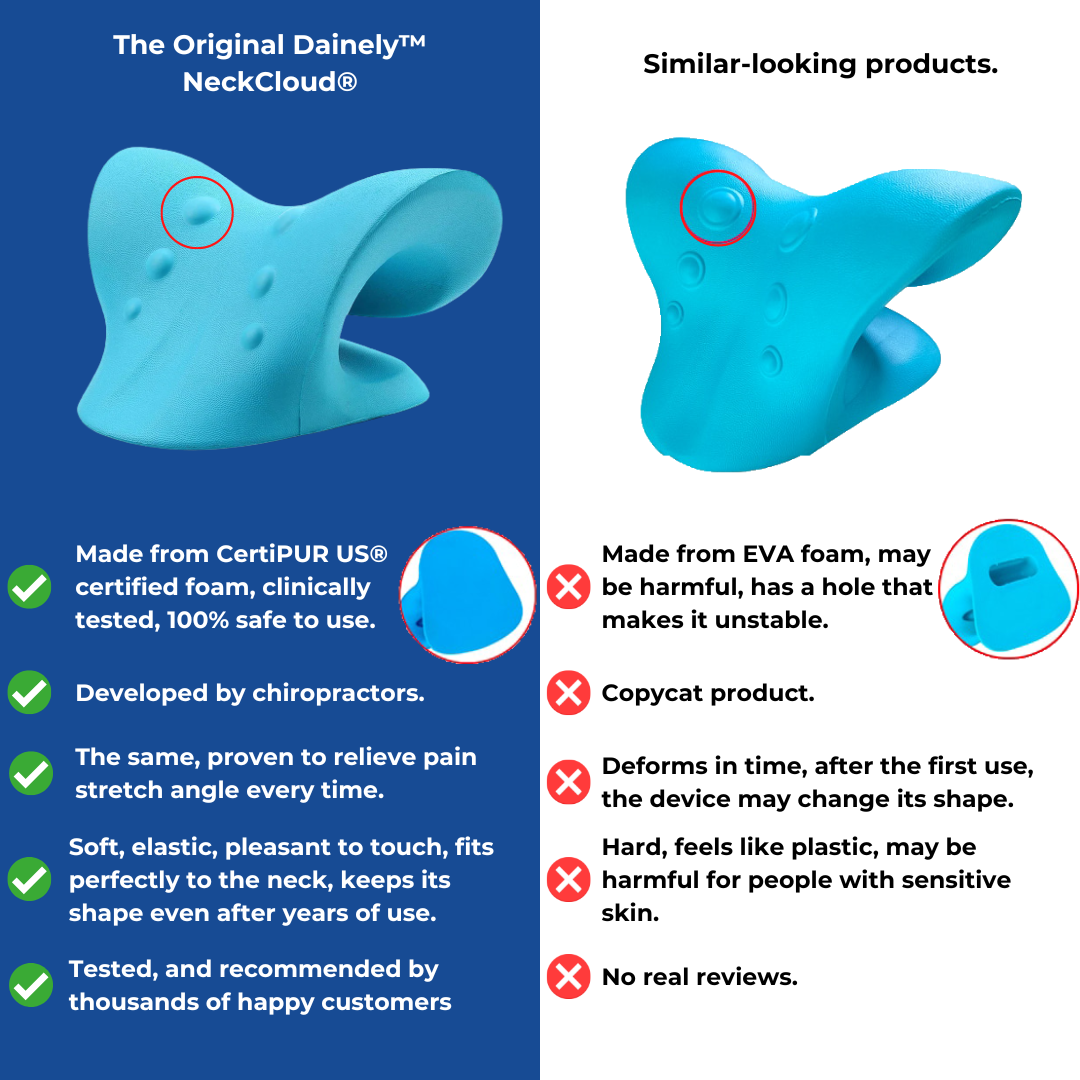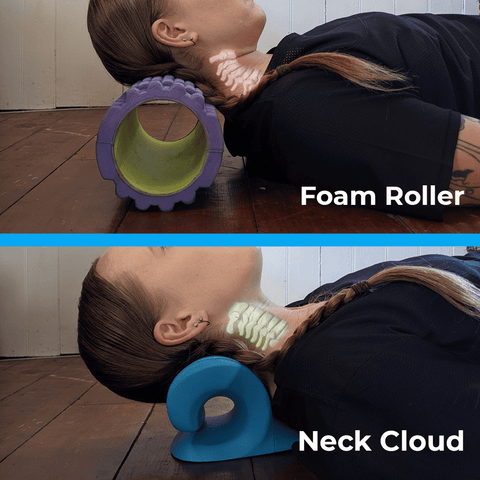Obtain Enduring Relief with the Neck Cloud: The Ultimate Neck Support
Obtain Enduring Relief with the Neck Cloud: The Ultimate Neck Support
Blog Article
The Effect of Stress And Anxiety on Neck Discomfort: Strategies for Minimizing Stress and Discomfort
In today's busy world, it's no key that anxiety has come to be a common factor in the onset and worsening of neck discomfort. The elaborate partnership between anxiety and muscle stress typically leaves people seeking alleviation from the discomfort that occurs. By discovering targeted techniques intended at reducing tension and advertising leisure, one can start to deal with the source of neck pain and work towards a much more well balanced state of wellness. Join us on a journey to unwind the influence of stress and anxiety on neck discomfort and discover effective means to reduce discomfort and improve general high quality of life.
Comprehending Stress-Related Neck Discomfort
Neck pain is a typical grievance that can typically be credited to anxiety. Stress-related neck pain can materialize as tension, tightness, or pain in the neck and shoulder location. The link between anxiety and neck pain hinges on the body's physical feedback to stress and anxiety, which can cause muscle mass tension and tightness in the neck muscular tissues. Chronic tension can lead to relentless neck discomfort and worsen status quo like cervical spondylosis or muscular tissue stress.

Identifying Common Tension Locations
Regularly experienced by individuals under anxiety, tension areas in the body can provide important understandings into the physical symptoms of emotional strain. One typical stress location is the neck, where stress commonly manifests physically. Tension headaches, rigid neck muscular tissues, and restricted variety of movement prevail symptoms of stress-related neck tension. The shoulders are one more usual location where tension builds up. Stress can trigger the muscular tissues in the shoulders to tighten up, leading to discomfort and pain. Furthermore, the top back is vulnerable to stress build-up, especially in individuals who experience chronic anxiety. Poor pose and long term sitting can worsen stress around. The jaw is additionally an usual area for stress-related stress, as lots of people clench their jaw or grind their teeth when stressed. Recognizing these common tension areas can help people identify the physical indicators of anxiety and take actions to address them before they escalate into persistent discomfort or pain.
Implementing Relaxation Techniques
To efficiently handle stress-related stress in the body, applying leisure methods is essential. Leisure strategies are beneficial tools for decreasing neck discomfort triggered by tension. Deep breathing workouts can assist calm the mind and loosen up strained muscles in the neck and shoulders (neck cloud). Exercising mindfulness meditation can additionally be beneficial in relieving tension and advertising relaxation. Dynamic muscle mass leisure, where you systematically strained and after that loosen up different muscular tissue groups, can launch built-up tension in the neck area. In addition, activities like yoga exercise and tai chi incorporate both physical activity and relaxation, making them effective methods for reducing stress and anxiety and neck pain. Taking routine breaks throughout the day to stretch and unwind can protect against muscle tightness and stress from building up. By integrating these leisure techniques into your day-to-day routine, you can assist handle stress levels, minimize stress in the neck, and reduce discomfort connected with stress-induced neck discomfort.
Integrating Self-Care Practices
Including self-care techniques is essential for preserving total health and managing stress-related neck discomfort properly. Participating in routine physical task, such as mild extending exercises or yoga, can visit this website help minimize tension in the neck and shoulders. Practicing good posture throughout the day and taking frequent breaks from prolonged resting or display time can additionally stop stress on the neck muscle mass.
Additionally, prioritizing adequate sleep and developing a constant sleep routine can add significantly to reducing stress and anxiety degrees and advertising relaxation. Creating a relaxing going to bed routine, such as reading a book or taking a cozy bath, can help prepare the mind and body for peaceful sleep. Additionally, keeping a well balanced diet abundant in nutrients and remaining hydrated can support total health and wellness and decrease inflammation that might intensify neck discomfort.
Integrating mindfulness practices, such as deep breathing workouts or meditation, can aid handle stress and anxiety and advertise relaxation. Taking time for oneself, taking part in hobbies, and establishing limits to protect individual time are likewise important facets Visit This Link of self-care that can contribute to decreasing stress and alleviating neck discomfort.
Seeking Specialist Help
Just how can people efficiently attend to relentless neck discomfort that is impacting their everyday life and wellness? Looking for specialist help can be a vital action in managing and minimizing neck discomfort.
Chiropractors specialize in spinal control strategies to boost placement and reduce tension in the neck area. Physiotherapists use targeted workouts and stretches to reinforce muscular tissues, boost adaptability, and boost total neck feature. Orthopedic professionals can supply innovative clinical treatments such as shots or medical alternatives for serious situations of neck pain.
Conclusion

Stress-related neck pain can manifest as tension, stiffness, or pain in the neck and shoulder location. The link in between anxiety and neck discomfort lies in the body's physiological reaction to stress, which can result in muscular tissue tension and rigidity in the neck muscular tissues. Stress frustrations, rigid neck muscle mass, and restricted range of motion are usual signs and symptoms of stress-related neck stress. By integrating these relaxation techniques right into your day-to-day regimen, you can assist handle tension levels, lower stress in the neck, and ease discomfort associated with stress-induced neck discomfort.

Report this page